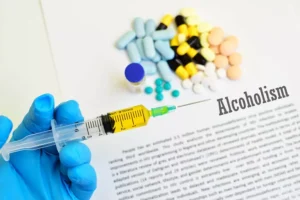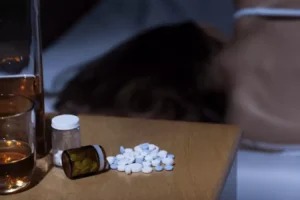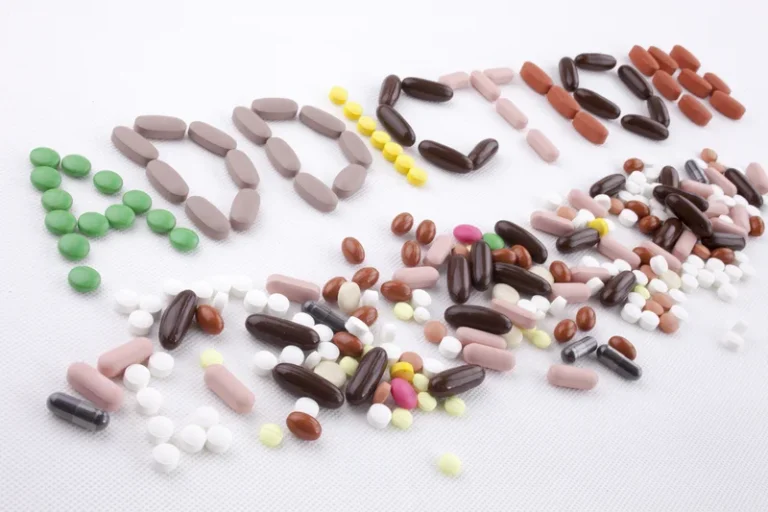
The frequency at which a person drinks also determines how much it affects the immune system. A person who drinks every day is more likely to have a weakened immune system and experience health complications than someone who rarely drinks or only drinks on occasion. It’s caused by a bacterial infection that begins elsewhere in the body, such as in the gut, lungs, skin, bladder, or https://ecosoberhouse.com/ kidneys, and enters the bloodstream. Septicemia is a serious condition because it can cause the bloodstream to carry bacteria and toxins throughout the entire body. Without rapid hospital treatment, septicemia can lead to sepsis, which is life-threatening. When ALD reaches its final stage, known as alcoholic liver cirrhosis, the damage is irreversible and leads to complications.
How much alcohol you have to drink before it weakens your immune system
Healthy habits, such as being active, eating a balanced diet, and getting enough sleep, can keep your immune system strong. But unhealthy factors, like stress, smoking, or drinking alcohol, can be taxing for your immune system and make it harder for it to fight off infection. « Although there is no evidence that moderate drinking harms the immune system, it is better to stick to wine or beer since these have lower percent alcohol, » Dasgupta says. « Alcohol damages the ability of your immune system to fight viral infections. In fact, both the Surgeon General and the World Health Organization advise anyone at high risk for COVID-19 to avoid alcohol because it increases your risk for infection. » That can put you at risk for long-term disease, according to the National Institute of Alcohol Abuse and Alcoholism (NIAAA). Even a short bout of binge drinking leaves you at higher risk for infection for about 24 hours.
Does alcohol weaken the immune system? Yes, if you drink too much
At our inpatient residential treatment centers, participants receive the help they need at the pace that suits them best. If you want to learn more about our rehab centers, professional team, or need answers to questions about addiction, does alcohol weaken your immune system please contact us today at Vertava Health. If you’d like to reduce or quit drinking, there are innovative new options for support. Online programs like Ria Health offer customized care from home, without disrupting your daily life.
Effects on CD4+ (Helper) T-Cells

The spike in alcohol sales has alarmed health experts and officials around the world, who are concerned that increased drinking could make people even more vulnerable to the respiratory disease. “These surprising findings indicate that some of the beneficial effects of moderate amounts of alcohol consumption may be manifested through boosting the body’s immune system. Alcohol feeding suppresses the production and secretion of certain acute-phase proteins (i.e., type II cell surfactant). This effect may contribute to lung injury in response to inflammation (Holguin et al. 1998). « Drinking alcohol in large quantities even just for a short period of time – like binge drinking – can be bad for your health and your immune system, » says Favini. « Alcohol also destroys the protective lining inside your respiratory tract that your immune system uses to prevent upper respiratory tract infections like the common cold, » Dasgupta says.


The World Health Organization (WHO) and U.S. surgeon general have warned people to avoid drinking too much alcohol during the COVID-19 pandemic. For those who have a risk factor for COVID-19, like heart disease or diabetes, he recommends drinking even less. One study found that people who got less than 7 hours of sleep were nearly three times more likely to develop a cold compared with those who got 8 or more hours of sleep. According to the Cleveland Clinic, once you take a sip of alcohol, your body prioritizes breaking down alcohol over several other bodily functions. The body doesn’t have a way to store alcohol like it does with carbohydrates and fats, so it has to immediately send it to the liver, where it’s metabolized.
- Vitamin D deficiency results in reduced differentiation, phagocytosis and oxidative burst, by monocytes as well as defective bactericidal activity by keratinocytes (Fabri, Stenger et al. 2011, Djukic, Onken et al. 2014).
- In contrast to the effects of high ethanol doses, human monocytes isolated after 30 days of moderate beer consumption (330mL for women and 660mL for men) exhibited increased phagocytic, oxidative burst, and intracellular bactericidal activity when incubated with fluorescence-labeled E.
- By illuminating the key events and mechanisms of alcohol-induced immune activation or suppression, research is yielding deeper insights into alcohol’s highly variable and sometimes paradoxical influences on immune function.
- With bars and restaurants shut down, many people are having virtual happy hours to socialize with friends.

To your body, alcohol is a toxin that interrupts your immune system’s ability to do its job, thereby compromising its function. Monocytes express Toll-like receptor (TLR) 4, the PRR that is often responsible for recognizing LPS on the surface of Gram-negative bacteria. After binding to LPS, monocytes are activated and mature into macrophages that travel to the site of infection to secrete important cytokines for the inflammatory response. Several studies have demonstrated the dose-dependent effect that alcohol has on preventing both monocytes and macrophages from binding to the bacterial cell wall component lipopolysaccharide (LPS). « Drinking alcohol in large quantities even just for a short period of time — like binge drinking — can be bad for your health and your immune system, » says Favini.
Neuroimmune Function and the Consequences of Alcohol Exposure
Finally, SCFAs have been shown to modulate immune inflammation responses in extraintestinal organs such as the brain, by acting on microglia and astrocytes. The dendritic cell (DC), which plays a critical role in T cell activation and initiation of adaptive immune responses, is another innate immune cell affected by ethanol. DCs uptake antigens in peripheral tissues which leads to their maturation, and then travel to draining lymph nodes where they present them to T cells (Janeway 2008). Similarly, consumption of 10% (w/v) ethanol in tap water ad libitum for 2 days in mice resulted in decreased bone marrow DC generation, decreased expression of CD80 and CD86, impaired induction of T cell proliferation, and a decrease in IL-12 production (Lau, Abe et al. 2006). By incompletely understood mechanisms, alcohol abuse leads to a disruption of the intestinal barrier integrity which in combination with the mucosal injury induced by alcohol, increases the permeability of the mucosa [55]. The intestinal barrier is a semipermeable structure that allows the uptake of essential nutrients and immune sensing while being restrictive against pathogenic molecules and bacteria [56].
Effects on B-Cells
“Alcohol intake can kill normal healthy gut bacteria, which help to promote health and reduce risk of infection,” Mroszczyk-McDonald said. “If you have a family history of alcohol abuse, or are at risk, or have been an abuser in the past, we are not recommending you go out and drink to improve your immune system,” says Messaoudi. The researchers found that before the monkeys had free access to alcohol, they all demonstrated comparable responses to the vaccinations.
However, similarly to the in vitro studies described above, at 2 and 5 hours post-binge the numbers of circulating monocytes were reduced and levels of antiinflammatory IL-10 levels were increased (Afshar, Richards et al. 2014). In addition to these changes in cytokine function, investigators also have shown a contribution of barrier dysfunction to the postinjury increase in infections in intoxicated people (Choudhry et al. 2004). Thus, alcohol intoxication can suppress chemokine production and impair the expression of proteins that allow neutrophils to adhere to other cells at the site of infection, which also contributes to increased susceptibility to infection. For example, in a model of lung infection, acute alcohol intoxication suppressed the production of certain chemokines (i.e., CINC and MIP-2) during infection and inflammation, thereby markedly impairing the recruitment of additional neutrophils to the site of infection (Boé et al. 2003). This defective neutrophil recruitment could be partially restored by localized chemokine administration (Quinton et al. 2005).
